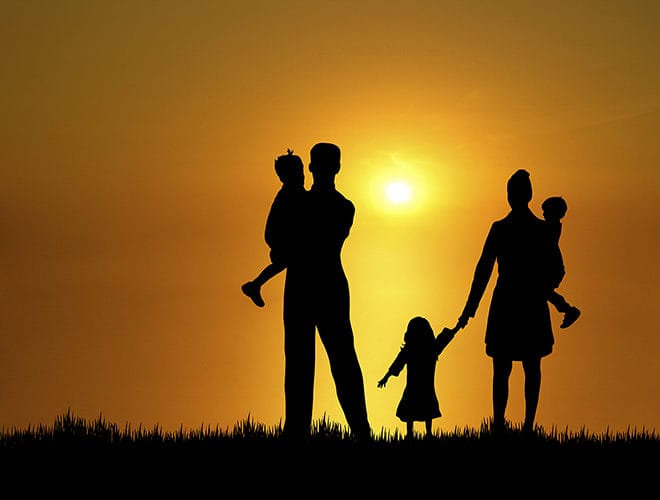Jan 23, 2018
You’re Still Mom & Dad. Your Kids Count on that Even after Divorce
Children and Divorce
Show Your Child How to Cope
Can you still maintain the Mom & Dad roles during your divorce? Divorce is difficult for everyone, adults and children alike. As parents we want to hide the difficult stuff from our children. We don’t want them to see us upset, angry or sometimes falling apart.
However you don’t have to hide these feelings from them. You are entitled to fall apart and grieve your loss. But this is not the same as over-sharing or telling your child too much about your personal life. If you do, you are forcing your child into an adult position and making them your confidant. Just let your child know this is hard time but it will get better. Your child sees how you handle your emotions; that it is okay to feel multiple emotions at a time such as love and anger at the same time. This is the lesson your child will take away.
Consistent Parenting is the Best Answer to Children’s Stress and Bad Behavior
All children react differently to divorce. Many children react with stress, anxiety and sadness. Others feel out of control, angry or scared. Or become aggressive, oppositional, defiant or uncooperative.
Some children “act out” hoping their parents will get back together. Others may “act perfectly” to prove their no reason to get divorced. Children’s grades may drop significantly, while others may start using substances to help with their emotions.
How can you handle your child’s behavior during and after your divorce? Children need consistency. Children do best when their parents act like their parents. This means you are mom and dad even though you are no longer a couple. Keep consistent rules and the same consequences, maintain a stable routine as much as possible, keep transitions simple, well planned and with a routine.
Don’t ignore the behavior. It won’t go away. If your child is trying out a new negative behavior, determine an appropriate response/consequence and then follow through.
Setting limits and following through with these limits is very important. It shows the child you are still mom and dad and that you care about them and want to protect them. Children need to know some things won’t change; your love for them and the rules and boundaries you have established for them.
Some Tips for Guiding Your Child Through Divorce
Here are some things to keep in mind while learning to parent your child through and after a divorce:
- Don’t give into guilty parenting. It’s easy to give into your child’s demands because you feel bad for what the divorce has done to your child’s life, however having no rules or structure can lead to an increase in your child acting out, not feeling like you care about them and other more serious problems.
- Back each other up as much as possible. This may be hard depending on the nature of your divorce, however if possible keep the same house rules and discipline the same as you always have. If you disagree with a consequence talk to the other parent outside of your child’s hearing. You want your child to see you as united front when it comes to being their parents.
- Consider therapy. Therapy can be a great place for your child to learn how to express themselves in a healthy way. It can also be a place where they feel safe to talk about their hurt, scared or angry feelings without feeling like they have to take sides.
- Consider a parent/child class. This does mean you don’t know how to parent your child. What its saying is parenting your child as divorced parents come with many difficult paths such as co-parenting, handling having two households and effectively navigating your child’s behavior. For children this can be a place to understand better what’s happening. Children can get non-biased information on what mom and dad are doing; information that you may not be able to provide at this time because you may be unsure of what to say and what not to say.
Ultimately parenting is hard. Parenting after divorce can be even harder. At times you are making decisions for your child alone where in the past you may have done so together. You are in a major state of change and your child may be experiencing feelings they have never felt before. Even though you are no longer a married couple you are still and will always be mom and dad. Your children need to know that will not change.
by Jennifer Manning, MSW, LSW
©2018 Alpha Center for Divorce Mediation
